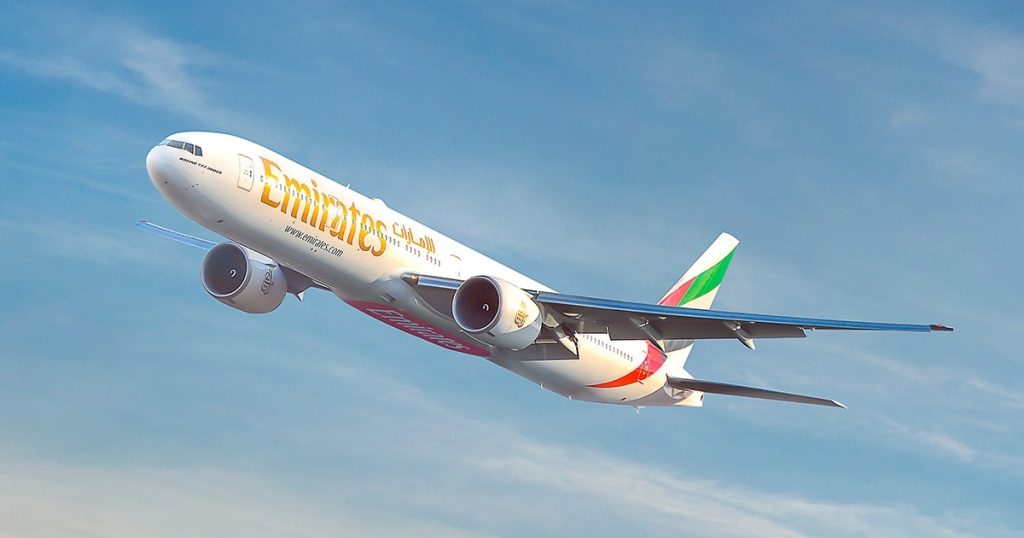Dubai-based Emirates Airlines has announced that it will suspend flights to Nigeria over the failure to repatriate money from the West African country.
The relationship between United Arab Emirates (UAE) and Nigeria worsened after Abuja restricted access to foreign exchange.
- Emirates Airlines noted that its attempts to initiate talks with the Nigerian government to solve the impasse hit a dead end
- The relationship between United Arab Emirates (UAE) and Nigeria worsened after Abuja restricted access to foreign exchange
- In June 2022, the International Air Transport Association (IATA) revealed that Nigeria had not handed over US$ 450 million owed to different airlines
- By July 2022, the money owed to foreign airlines had risen by US$14 million to US$464 million
BBC reported that the Nigerian government was yet to comment on the matter. In a statement, Emirates Airlines noted that its attempts to initiate talks with the Nigerian government to solve the impasse hit a dead end.

The airline said it would stop all flights to Nigeria beginning September 1 to cut losses. Nigeria holds US$85 million in revenue earned by the airline.
“Emirates has made the difficult decision to suspend all flights to and from Nigeria, effective September 1 2022, to limit further losses and impact on our operational costs that continue accumulating in the market.
“We sincerely regret the inconvenience caused to our customers. However, the circumstances are beyond our control at this stage. We will be working to help impacted customers make alternative travel arrangements wherever possible,” the airline said in a statement.
The airline said it was open to continuing operating in Nigeria if there were positive developments related to the repatriation of its money.
“We remain keen to serve Nigeria, and our operations provide much-needed connectivity for Nigerian travellers, providing access to trade and tourism opportunities to Dubai, and to our broader network of over 130 destinations,” it added.
In June 2022, the International Air Transport Association (IATA) revealed that Nigeria had not handed over US$ 450 million owed to different airlines. By July 2022, the money owed to foreign airlines had risen by US$14 million to US$464 million.
The funds were generated from ticket sales but were yet to be remitted, leading to friction between Nigerian authorities and international airlines.
The Nigerian federal government attributed the mess to the foreign exchange crisis as the naira continues to weaken against the dollar. IATA asked the West African country to release the funds’ failure, to which it risks being alienated from air connectivity.
“IATA is disappointed that the amount of airline money blocked from repatriation by the Nigerian government grew to $464 million in July. IATA’s many warnings that failure to restore timely repatriation will hurt Nigeria with reduced air connectivity are proving true with the withdrawal of Emirates from the market.
“Airlines can’t be expected to fly if they can’t realise revenue from ticket sales. Losing connectivity harms the economy, hurts investor confidence, impacts jobs and people’s lives. The government of Nigeria needs to prioritise the release of funds before more damage is done,” IATA said in a series of tweets.
In May 2022, Emirates Airlines recorded a loss of US$1.1 billion, a great improvement from the US$5.5 billion it registered in the previous year. During the period under review, the airline reported a 91 per cent increase in revenue to US$16.1 billion for the year ended March 31, 2022.
“This year, we focussed on restoring our operations quickly and safely wherever pandemic-related restrictions eased across our markets,” Ahmed said.